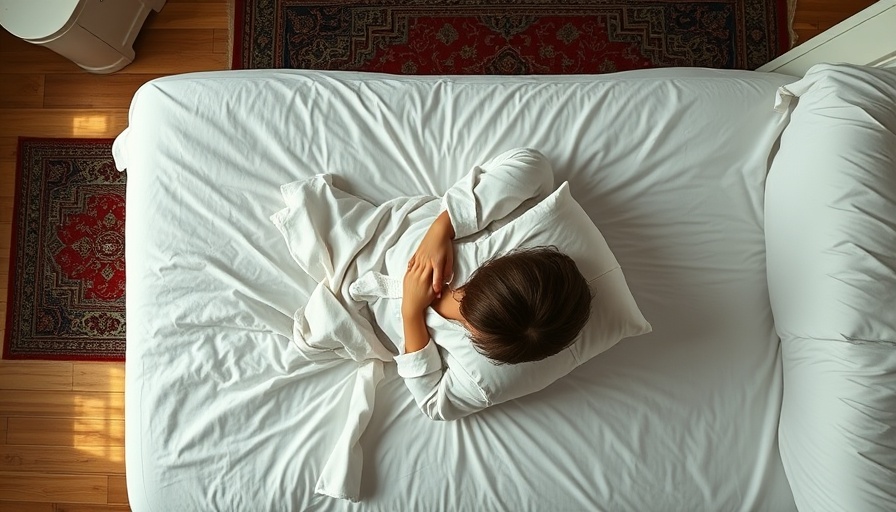
Understanding the Hidden Costs: Undiagnosed Sleep Apnoea
Sleep apnoea, a common yet often undiagnosed condition, can significantly impact an individual's psychological well-being. Research shows a strong link between sleep disorders and various mental health issues, including anxiety disorders and depression. When left untreated, sleep apnoea may lead to chronic fatigue, mood swings, and an increased risk of anxiety symptoms, potentially complicating existing mental health challenges.
The Intersection of Sleep, Anxiety, and Mental Health
The debilitating effects of sleeplessness reverberate throughout various aspects of life, especially in populations already vulnerable to mental health issues. In students, for instance, poor sleep quality exacerbates stress, affecting academic performance and leading to heightened workplace anxiety in peers. Young adults grappling with general anxiety disorder may find their coping mechanisms compromised, leading to a troubling cycle where anxiety and sleep disturbances feed off each other.
Impact on Vulnerable Groups: The Cases of Elders and Women
Particularly concerning is the prevalence of undiagnosed sleep apnoea among women and older adults. Women may experience sleep apnoea symptoms differently, leading to misdiagnosis or delayed treatment. Elderly individuals often suffer significant cognitive decline when sleep disorders go unaddressed. The stigma around admitting sleep problems can deter these populations from seeking help, further worsening their mental health conditions. Learning to navigate these societal pressures is crucial for their treatment and overall well-being.
The Role of Support Systems and Community Awareness
Community outreach and support groups play an essential role in encouraging individuals to acknowledge the implications of undiagnosed sleep apnoea. Programs focusing on mental health education can highlight the importance of sleep hygiene, recognizing signs of sleep disorders, and employing effective relaxation techniques. Initiating conversations about sleep health in schools and workplaces can mitigate the stigma and promote understanding, leading to early intervention and prevention strategies.
Moving Towards Solutions: The Need for Comprehensive Testing
Given the profound psychological costs of undiagnosed sleep apnoea, there is an urgent need for accessible testing and screening methods. Incorporating health screenings into routine check-ups can help identify sleep-related issues early, allowing for timely intervention. Healthcare professionals must advocate for mental health screening as part of a comprehensive approach to health that includes assessing sleep quality.
Identifying Practical Steps for Holistic Management
Integrating practical insights such as mindfulness, cognitive behavioral therapy, and sleep hygiene education can significantly enhance individuals' resilience against anxiety symptoms relating to sleep disorders. Therapists and doctors should collaborate to share coping strategies that address both mental and physical health—encouraging mindfulness techniques, therapeutic exercises, or even art therapy to help patients cope with the psychological burden caused by untreated sleep apnoea.
The Future of Sleep Health Awareness
As conversations around mental health evolve, highlighting the importance of sleep health in preventing anxiety and other mental health disorders is paramount. Continued advocacy for public awareness campaigns can foster a cultural shift towards prioritizing psychological wellness through better sleep. Future research may provide further insights into innovative treatments and preventive measures to diminish the impact of sleep apnoea on mental health, ultimately promoting economic stability and healthier communities.
Conclusion: Take Action for Your Sleep Health
Understanding the profound links between sleep disorders and mental health opens avenues for advocacy and change. If you or someone you know is struggling with issues related to sleep and mental health, encouraging them to seek help is essential. Utilize available resources: reach out to healthcare professionals, engage with support groups, and explore community outreach programs aimed at enhancing mental health awareness. Together, we can dismantle stigmas and promote healthier lives through better sleep.
 Add Row
Add Row  Add
Add 




Write A Comment